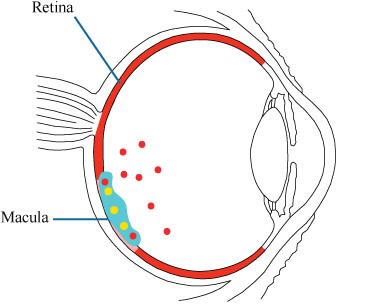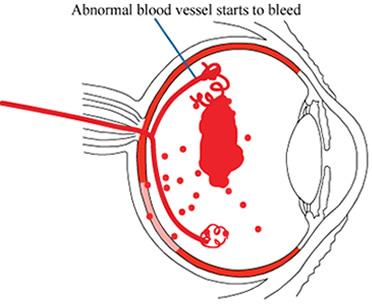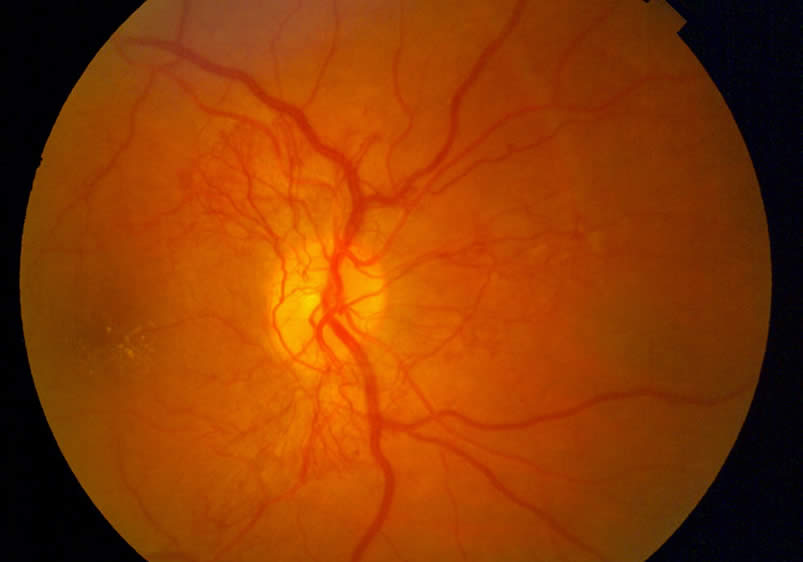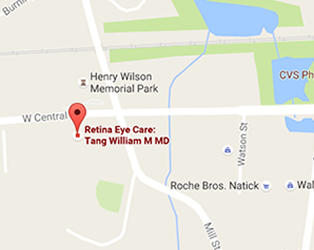Diabetic Retinopathy
Overview
Diabetic retinopathy is the leading cause of blindness among working-age adults. Diabetes is a disease that slowly damages the tiny blood vessels throughout your body, especially in the eyes. These blood vessels can start to leak fluid into the retina, interfering with normal vision. The most effective way to prevent vision loss in diabetes is to have regular dilated eye examinations. When a problem is discovered early, treatments can often be given to stop vision loss or help vision improve. If you have diabetes retinopathy, working closely with your diabetes doctor and your retina specialist is the best way to ensure you will have the best vision long-term. With diabetes, success comes from all the little baby steps that you take.
Diabetes Eye Monitoring
It is recommended that you have a dilated eye examination once a year to look for diabetic retinopathy. During the very early stages of diabetes, the damage to the retina may not even be visible on a routine dilated eye examination. Specialized equipment (OCT Angiography) can detect early capillary damage even prior to the onset of diabetic retinopathy. An eye examination once a year would also help detect common eye conditions like cataract and glaucoma, both of which develop more commonly in diabetes.
Systemic Management
Diabetes is a complex disorder. Tight control of blood glucose over long periods of time helps reduce the risk of developing diabetic retinopathy, but in some cases, control that is too tight may have undesirable effects. It is therefore important to work with all your doctors including your diabetes doctor and your retina specialist to ensure an optimal plan is developed and followed. If you have diabetic retinopathy, maintenance of the blood pressure, cholesterol, and triglycerides is also very important.
Diabetic Macular Edema
Over time, the small blood vessels in the eye start to leak fluid into the macula (central part of the retina). Your central vision can become affected. You may gradually notice more difficulty reading or working on the computer or seeing to drive. One or both eyes may be affected. At a certain stage, treatments may be required to stop further vision loss or help vision improve. Treatments may include eye injections and/or laser treatments. Treatments can be very effective in keeping the macula dry and maintaining good vision. Treatments often need to be repeated multiple times, sometimes a year or longer, to suppress the fluid leakage in the macula.
Proliferative Diabetic Retinopathy
In more severe cases, the normal blood vessels are so damaged inside the eye, that the eye starts to sprout new abnormal blood vessels internally called neovascularization. These abnormal, fragile blood vessels can bleed easily. Patients can sometimes develop sudden, severe vision loss due to bleeding inside the eye. Alternatively, these abnormal blood vessels can lead to scar tissue formation on the retina. The scar tissue can then pull and detach the retina, causing vision loss. Treatments may include eye injections, laser treatment, or vitrectomy eye surgery in order to repair or reverse some of the damage. With intensive therapy, most severe cases can be stabilized.
Diabetic NVD (Neovascularization of the Disc)
Why Is My Eye Getting Worse When I Am Keeping My Sugar Down?
It takes 5 to 15 years for high blood sugar for the retina to develop diabetic retinopathy. The diabetic retinopathy that you are dealing with has taken many years to develop and get to this stage. If you have recently gained better control of your blood sugar, you will start to reap the benefits in the upcoming years. However, in the mean time, your diabetic retinopathy may continue to get worse, and you may need eye treatments.
Best Strategy
The patients who have the best vision long-term are almost always those who keep their eye appointments and stick with the treatment plan. With diabetes, success comes from all those little baby steps that you take. Working with your diabetes doctors and your retina specialist helps ensure you will get the best vision and eye health possible long-term.





